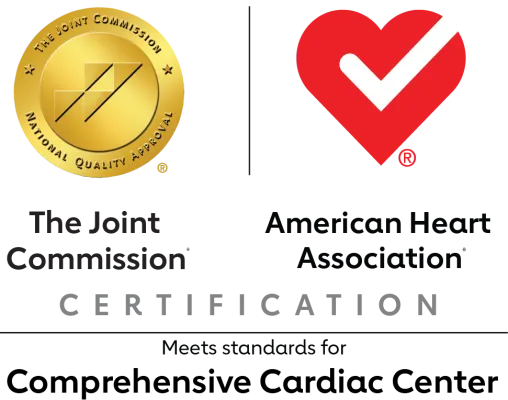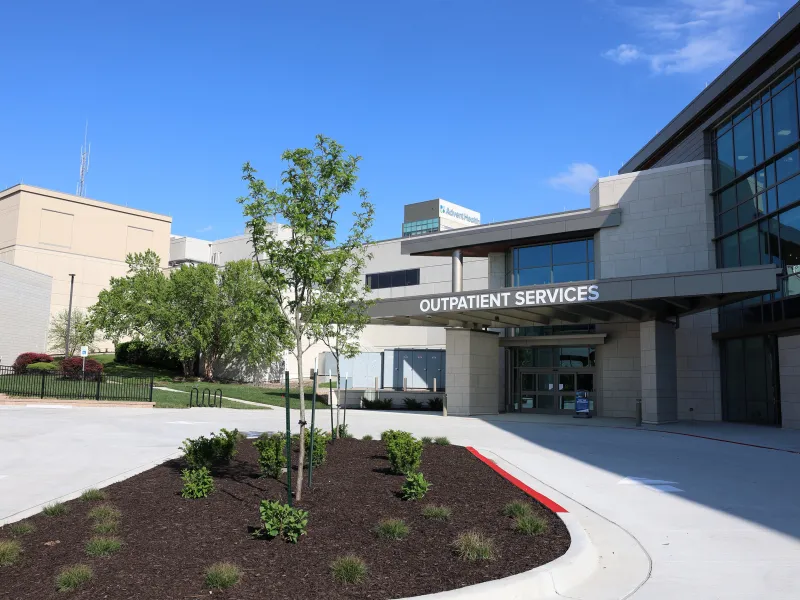Our Greatest Achievement Is Caring for You
We’ve been recognized for our commitment to innovative, safe and high-quality heart and vascular care.
-
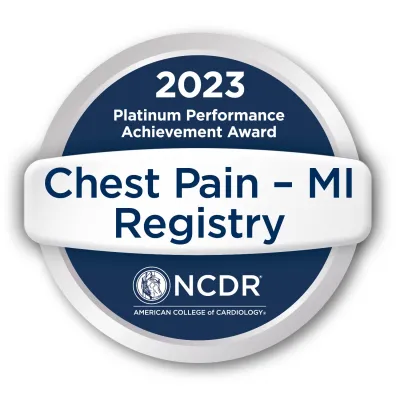
Platinum Performance Achievement Award: Chest Pain – MI Registry
Awarded for demonstrating sustained achievement of performance measures in the treatment of acute myocardial infarction patients through the implementation of American College of Cardiology/American Heart Association Clinical Guideline Recommendations.
-

Get With The Guidelines® - Heart Failure GOLD PLUS
The American Heart Association recognizes AdventHealth Shawnee Mission for outstanding care by awarding us Get With The Guidelines® - Heart Failure GOLD PLUS with Target: Heart Failure Honor Roll and Target: Type 2 Diabetes Honor Roll.
-
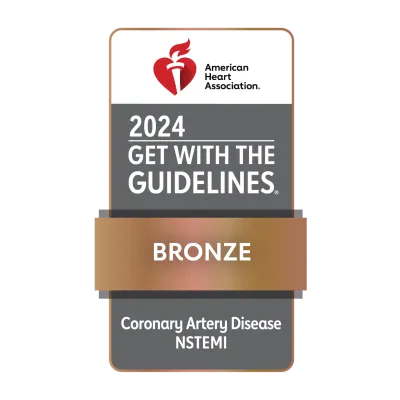
Get With The Guidelines® Coronary Artery Disease NSTEMI Bronze
AdventHealth Shawnee Mission has received the American Heart Association’s Get With The Guidelines® – Coronary Artery Disease NSTEMI Bronze recognition for its commitment to offering rapid, research-based care to people experiencing a specific type of heart attack known as a non-ST elevation myocardial infarction (NSTEMI).
-

Get With The Guidelines® Coronary Artery Disease STEMI Receiving Silver Plus
AdventHealth Shawnee Mission has received the American Heart Association’s Get With The Guidelines® – Coronary Artery Disease STEMI Receiving Center Silver Plus recognition for its commitment to offering rapid, research-based care to people experiencing a specific type of heart attack known as an ST elevation myocardial infarction (STEMI), known to be more severe and dangerous than other types of heart attacks.
-
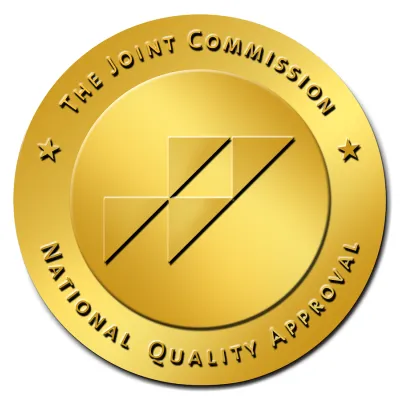
Joint Commission Gold Seal of Approval®
AdventHealth Shawnee Mission received a Gold Seal of Approval as a Primary Stroke Center symbolizing our commitment to providing safe and quality patient care.
-

American Association of Cardiovascular and Pulmonary Rehabilitation (AACVPR) Certified Cardiac Rehabilitation Program
AdventHealth Shawnee Mission has been awarded the certification of its cardiac rehabilitation program by the American Association of Cardiovascular and Pulmonary Rehabilitation (AACVPR). This certification is recognition of AdventHealth Shawnee Mission’s commitment to improving the quality of life of patients by enhancing standards of care.
Take Health Into
Your Own Hands



